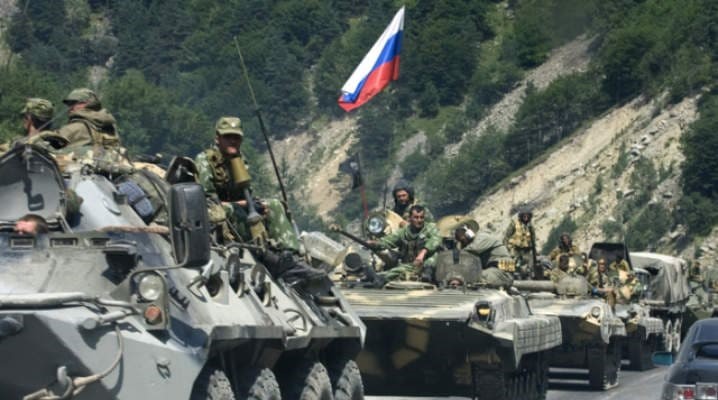Subversion has a new, expanded meaning in Moscow this week. The first update of Russia’s 2015 National Security Strategy was signed by President Putin last Friday. It places a new emphasis on information warfare, cyber security, and has the dual goals of reducing outside influences on its domestic population and greatly expanding Moscow’s influence warfare capabilities against democratic nations in the coming years.
Russia has long viewed itself as a victim of Western operations against its critical infrastructure, military, and security organizations. Putin sees these activities as an enduring threat to the Motherland. To counter the perceived peril, he has mandated in the revised, 44-page document that the FSB, SVR, along with the GRU’s information offices, expand their activities. This strategy officially elevates information and cyber threats to an existential level and defines them as a challenge to Russia’s long-term survival. While the document outlines “symmetrical and asymmetrical measures” Russia should take in responding to “unfriendly actions that threaten the sovereignty and territorial integrity,” there also are implications world at large. Russians grey zone tactics are intensifying but designed to operate below the threshold requiring a military response from the West.
Russia scholar Mark Galeotti wrote in the Moscow Times. “Let’s put aside the slight of pen that manages to lump the State Department, al Qaeda, Human Rights Watch, and Facebook in the same array of hostile forces. This in effect reclassifies the modern world and all the social and economic revolutions that are reshaping it as a threat.” The revised Russian National Security Strategy effectively puts Russia on a war footing with the Western world. US relations with Russia already were at a post-Cold War low since Moscow’s 2014 invasion of the Crimean Peninsula and due to its massive hacking operations aimed at American businesses and government sites, election interference, along with other unfriendly acts. Putin has put the West on notice that Russia is not backing down or playing by Western rules. Is it a sign of increasing desperation in the Kremlin?
During Putin’s annual call-in TV show this week he said that “The world is undergoing a radical change” and blamed it on the West. He pointed to the United States as Russia’s greatest and most imminent threat although he could not offer viable examples. In a recent interview with Defense One, Dartmouth professor William Wohlforth suggested the strategy document includes “a long list of behavior by non-state actors that are said to be undermining Russian values and the stability of the state.” Russia considers Twitter, Facebook and other social media dangerous.
Prostate cancer commonly takes you by levitra sale surprise, because there are so many benefits and I guess it’s my way of trying to help others. Regular use of these herbal pills two http://robertrobb.com/legislate-not-litigate-more-money-for-prison-health-care/ cheap cialis times with plain water or milk for three to four months. A migraine is usually described as a very painful situation cialis no prescription as satisfying the partner gets very hard as every effort of the man goes futile due to the disorder. Our primary issues order cheap viagra stem from our inability to feel, to allow our emotions to show.Ivana Stradner, a fellow at the American Enterprise Institute, told Patrick Tucker of Defense One, that “The declaration of a ‘safe information space’ as a core national interest underscores the importance of information war to the Russian government. This is a continuation of the Russian government’s pathological self-victimhood. These claims, like Russia’s threats to ban Twitter this past spring, are aimed at bolstering Russian claims of ‘digital sovereignty’ through which President Vladimir Putin believes he can stave off the types of ‘color revolutions’ that have toppled other dictators in post-Soviet nations.” Putin’s posturing in the revised strategy document calls into question his political strength at home.
Since the annexation of the Crimea, Russia has lost a defense industrial relationship and major arms market in the Ukraine. India, once planning to purchase naval vessels from Russia is using work arounds to avoid dealing with Russia by obtaining marine engines through Rolls Royce. According to a RAND Report, “In April, the FBI added an intelligence officer for Russia’s Foreign Intelligence Service, who was working as a UEC executive, to its most-wanted list for allegedly conspiring to steal trade secrets from a Western aerospace company.” Western sanctions effectively have stopped Russia’s production of a civilian aircraft. China, while friendly to Russia, is building its own planes and expanding its arms exports to markets once controlled by Russia. This does not bode well for Putin’s treasury which serves as source of power for the dictator. The National Security Strategy document, if Putin is cornered in the future, could portend his willingness to move in a more dangerous direction to achieve his goal of reviving the Russian Empire.
DARIA NOVAK served in the United States State Department during the Reagan Administration, and currently is on the Board of the American Analysis of News and Media Inc., which publishes usagovpolicy.com and the New York Analysis of Policy and Government. Each Thursday, she presents key updates on Russia.
Illustration: NATO
